-
Pitney Bowes
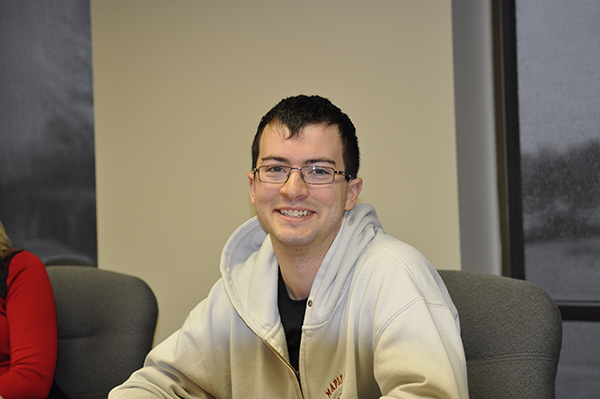 Alex Cullen grinned and pumped his fist in the air. "I aced it," he said.
Alex Cullen grinned and pumped his fist in the air. "I aced it," he said.
What he "aced" was four weeks of skills training and evaluation offered by global technology company Pitney Bowes in an innovative approach to recruiting and hiring people with disabilities at its mail sorting facility in Fridley.
"It’s been phenomenally successful for us," said Matt Lagerquist, a manager at Pitney Bowes. "And the thing is, we didn’t set out to do this. It just became the way we do business." The idea was to interview everyone who applied for work, because often people with disabilities never got past an initial screening.
The company offers skills training and evaluation that examine a potential employee’s attendance, attitude, attention to quality and detail. It’s a paid trial evaluation for potential employees. And it works.
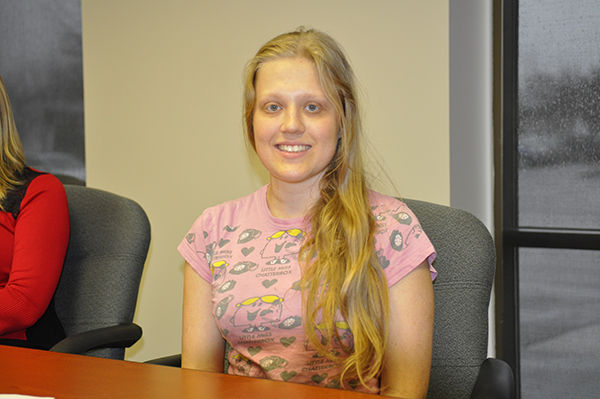 Alex, who is 23, has attention deficit hyperactivity disorder (ADHD) and a learning disability. He is among 78 people with disabilities over the past four years who completed the training, nearly half of whom — 31 people — were hired by Pitney Bowes. Amanda Belair, who is 22 and also has ADHD, and Terese O’Reskie, 54 and hard-of-hearing, are among the dozens who have participated in the program.
Alex, who is 23, has attention deficit hyperactivity disorder (ADHD) and a learning disability. He is among 78 people with disabilities over the past four years who completed the training, nearly half of whom — 31 people — were hired by Pitney Bowes. Amanda Belair, who is 22 and also has ADHD, and Terese O’Reskie, 54 and hard-of-hearing, are among the dozens who have participated in the program.
The company trains, evaluates, and hires people like Alex, Amanda, and Terese. The model works because of a unique partnership with Vocational Rehabilitation employment specialists and community rehabilitation providers. Michelle Chmielewski, a VR placement coordinator in Brooklyn Park, was instrumental in helping to develop and coordinate the training and evaluation program. Other VR staff also play a key role in identifying job candidates and preparing them to apply for work.
The partnership started in response to the large number of requests for interviews Pitney Bowes received from Vocational Rehabilitation and community rehabilitation program staff. "We were being inundated," Lagerquist said.
The solution was to designate someone as the "single point of contact" for Pitney Bowes. The company found that it was much more efficient to talk with one person than with several. Lagerquist said, "it ended up opening up a whole new pool of qualified candidates to grab from."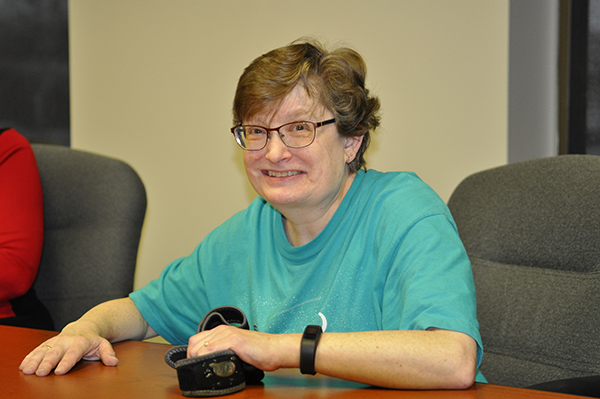
The model has been so successful that Lagerquist and others at Pitney Bowes are in demand as speakers and consultants to show other companies how this model could be replicated elsewhere. "Why wouldn’t it be?" he asked. "There’s no downside."
-
Medtronic Perfusion Systems
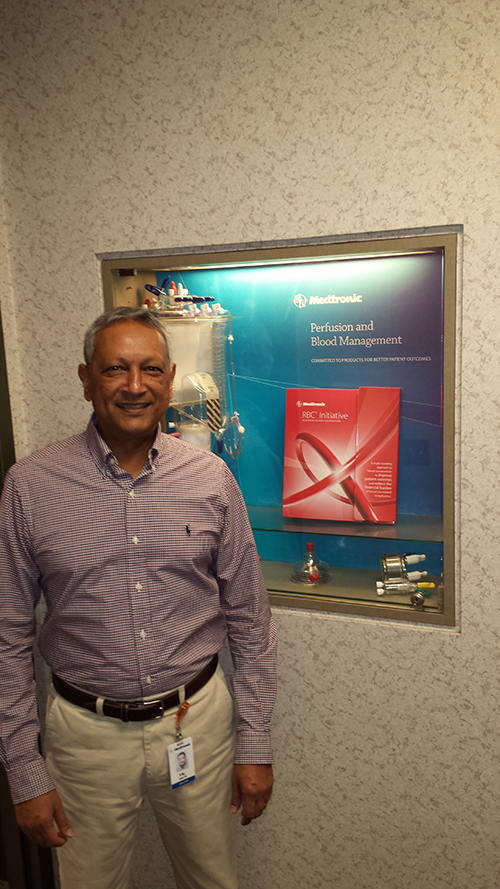 Val Nauth, production manager for Medtronic Perfusion Systems in Brooklyn Park, is an enthusiastic proponent of diversity and inclusion in the workplace. "My philosophy," he says, "is that anyone and everyone can do the job — until they show me they can’t." It’s a philosophy that has led to the hiring of several individuals with disabilities— sometimes as student interns, sometimes as contract employees, and sometimes as full-time regular employees assembling perfusion devices used for blood management during surgery.
Val Nauth, production manager for Medtronic Perfusion Systems in Brooklyn Park, is an enthusiastic proponent of diversity and inclusion in the workplace. "My philosophy," he says, "is that anyone and everyone can do the job — until they show me they can’t." It’s a philosophy that has led to the hiring of several individuals with disabilities— sometimes as student interns, sometimes as contract employees, and sometimes as full-time regular employees assembling perfusion devices used for blood management during surgery.
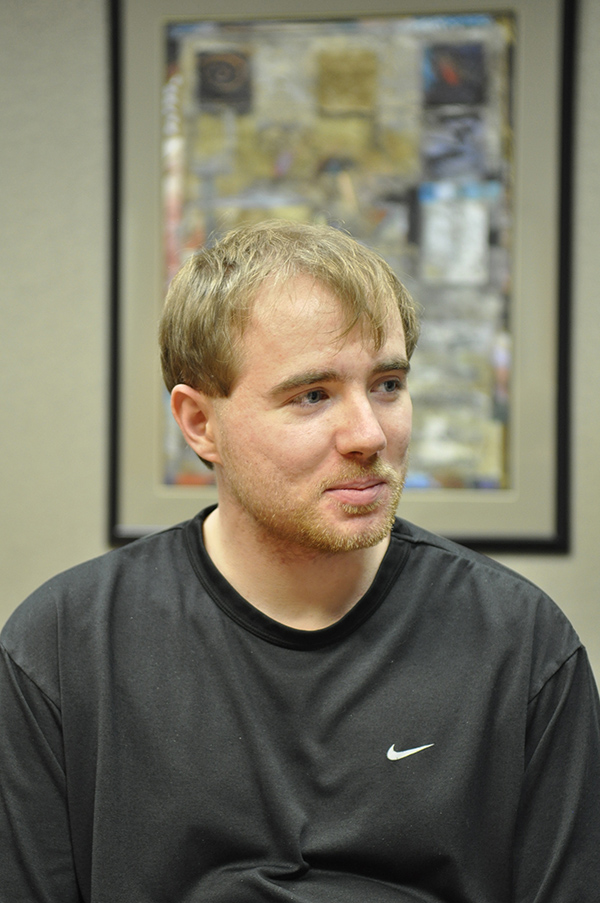 Jacob Branum, a 21-year-old from East Bethel, is one of them. He’s a contract employee who started at Medtronic Perfusion Systems in September 2014 and has a realistic expectation of working his way into a permanent fulltime career there. His story showcases a unique partnership model that matches the goals and skills of job candidates with the recruiting and hiring needs of an employer. In this instance, the partnership includes counselors and employment specialists from Vocational Rehabilitation Services, HR professionals and plant managers at Medtronic, and a Minneapolis staffing consultancy called Indrotec.
Jacob Branum, a 21-year-old from East Bethel, is one of them. He’s a contract employee who started at Medtronic Perfusion Systems in September 2014 and has a realistic expectation of working his way into a permanent fulltime career there. His story showcases a unique partnership model that matches the goals and skills of job candidates with the recruiting and hiring needs of an employer. In this instance, the partnership includes counselors and employment specialists from Vocational Rehabilitation Services, HR professionals and plant managers at Medtronic, and a Minneapolis staffing consultancy called Indrotec.
Jacob, whose disabilities affect his ability to find and keep work, was laid off from a previous job. He came to VRS and worked with Sara Wolf, placement coordinator in Blaine, who assisted him with his resume, mock interviewing, and finding job leads. Jacob also worked with Michelle Chmielewski, VRS placement coordinator in Brooklyn Park, who is the primary point of contact with Medtronic and Indrotec for recruiting and screening VRS candidates. "They helped me plan what I wanted to do, and they kept me moving really quickly," Jacob recalls. "And what I really wanted to do was to work with my hands, to have a hands-on job."
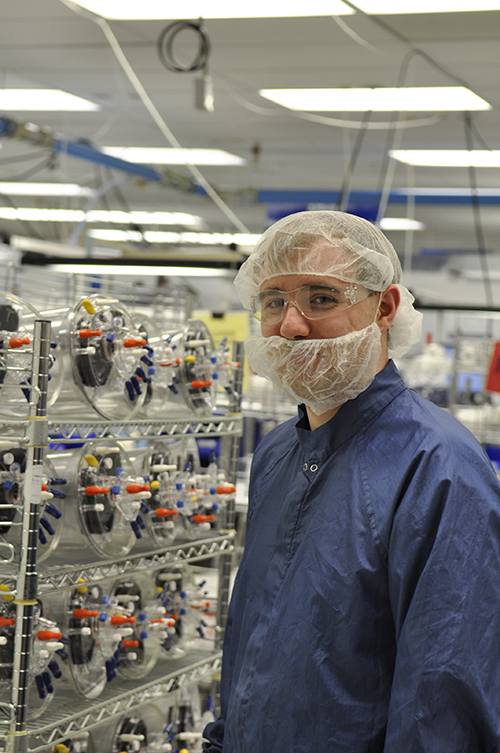 Soon the VRS partnership with Medtronic Perfusion Systems and Indrotec began to pay dividends. Sara suggested that Jacob might consider applying for an assembly position at Perfusion Systems.
Soon the VRS partnership with Medtronic Perfusion Systems and Indrotec began to pay dividends. Sara suggested that Jacob might consider applying for an assembly position at Perfusion Systems. 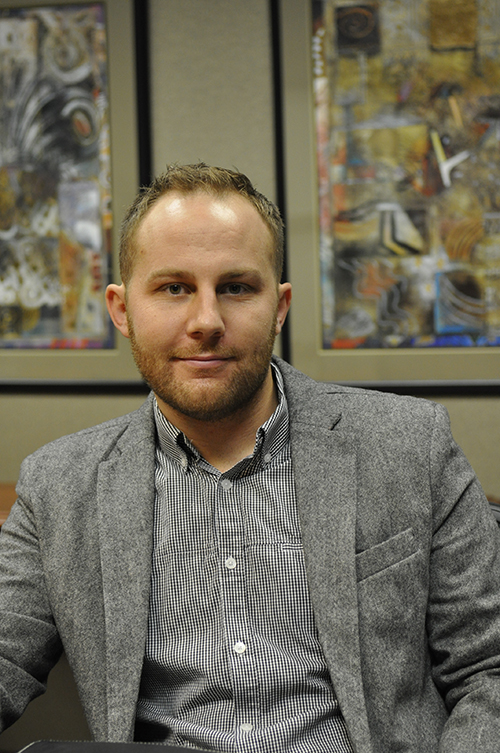 Meanwhile, Michelle contacted Patrick Lange, an account manager at Indrotec, who has a strong working relationship with the Medtronic human resources department. Together they were able to introduce Jacob to the workplace, assess his interest and skill set for the job, and establish that it would be a suitable fit for him. "Everybody wants to help people get a foot in the door," Patrick says. "These are quality jobs and career positions… and we want to be sure to put candidates in a position where they can succeed."
Meanwhile, Michelle contacted Patrick Lange, an account manager at Indrotec, who has a strong working relationship with the Medtronic human resources department. Together they were able to introduce Jacob to the workplace, assess his interest and skill set for the job, and establish that it would be a suitable fit for him. "Everybody wants to help people get a foot in the door," Patrick says. "These are quality jobs and career positions… and we want to be sure to put candidates in a position where they can succeed."
Jacob started his new job last September, and if his career path follows the anticipated trajectory, he’ll work as a contractor through Indrotec for about a year, and then make the conversion to becoming a full-time permanent employee with a pay increase and full benefits. "It’s a great job," he says. "I like it a lot and hopefully it’s going to turn into a career."
The VRS relationship with Medtronic and Indrotec ensures that there’s a regular and formal process for recruiting, interviewing and hiring people with disabilities — and that there will continue to be opportunities for VRS clients to begin their careers at the global medical technology company. Val Nauth, Perfusion’s production manager, says he anticipates hiring several more employees like Jacob. "I have an appetite for this," he says. "Give us the candidates…there is no limit to what we can do."
-
Kwik Trip
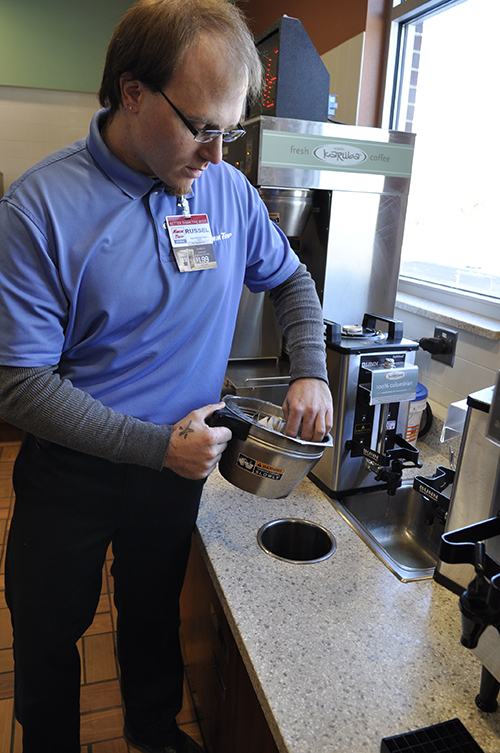 In August 2013 Joalyn Torgerson placed what proved to be a productive phone call to the Vocational Rehabilitation Services office in Mankato. She was calling from the human resources department at the Kwik Trip convenience store headquarters in La Crosse, WI, and she had a question: Would VRS have any interest in a partnership with Kwik Trip to fill retail helper positions in the chain’s rapidly growing network of Minnesota stores?
In August 2013 Joalyn Torgerson placed what proved to be a productive phone call to the Vocational Rehabilitation Services office in Mankato. She was calling from the human resources department at the Kwik Trip convenience store headquarters in La Crosse, WI, and she had a question: Would VRS have any interest in a partnership with Kwik Trip to fill retail helper positions in the chain’s rapidly growing network of Minnesota stores?
Kwik Trip had been hiring people in Wisconsin stores through its retail helper program for more than 20 years — but until Torgerson placed that phone call the chain had never made a particular commitment in Minnesota to hiring people with disabilities. “That call, and the resulting partnership with VRS, is what really moved it forward,” she says.
A year later, Kwik Trip has hired more than 40 people with disabilities, nearly all of them customers of Minnesota’s VR program. “Partnering with Joalyn has been very successful in providing more employment opportunities for people with disabilities” says Roberta Johnson, the Mankato-based VRS program specialist who works most closely with Kwik Trip. Marci Jasper, a Twin Cities VRS program specialist, also works closely with Kwik Trip in the metro area and statewide.
Russ Swain is one of many VR customers who have benefited from the partnership. In January 2014 he started his job at Kwik Trip in Owatonna, where he now works 15 hours a week making coffee, cleaning up, unloading trucks, stocking shelves. “I just come and do my job, whatever I’m told,” he says, showing off the list that he carries to remind him what needs doing.
The list is a useful and necessary prompt, a simple accommodation that makes it possible for him to do his job. Swain has a form of diabetes, which in 2012 led to a severe drop in his blood sugar, resulting in a seizure that left him unconscious and hospitalized for 10 days. The episode caused significant brain damage and short-term memory loss, and forced him to leave a supervisory position at a business management consultancy. He worried that he might never work again.
For more than a year after his hospitalization, Swain received a variety of intensive services — counseling and guidance, home supports, assessment, job search assistance, job coaching, and transportation — from VRS and Straight River Enterprises, a day training and habilitation program that provides specialized vocational and skill building supports.
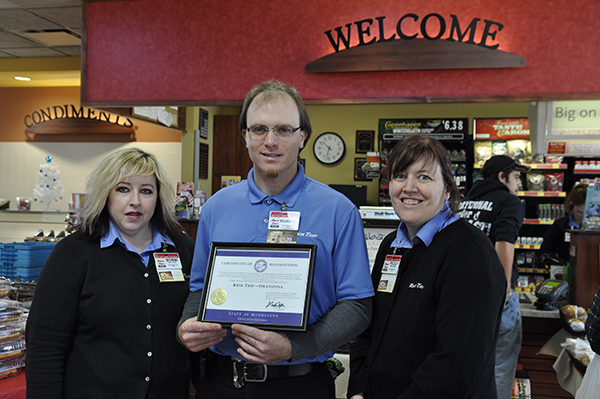 When the Owatonna Kwik Trip store posted an opening for a retail helper position, Swain was screened by Johnson, applied and interviewed for the job, and ultimately was hired by Peggy Zinniel, who was then the store leader. Her successor, Bobbi Moore, is now Swain’s supervisor. Both contend that Kwik Trip’s retail helper program works extremely well because of the strong relationship with VRS.
When the Owatonna Kwik Trip store posted an opening for a retail helper position, Swain was screened by Johnson, applied and interviewed for the job, and ultimately was hired by Peggy Zinniel, who was then the store leader. Her successor, Bobbi Moore, is now Swain’s supervisor. Both contend that Kwik Trip’s retail helper program works extremely well because of the strong relationship with VRS.
“It’s great to have the relationship,” Zinniel says. “Our working relationship is really good and extremely productive. I’m just honored and thankful that we have this program.” And Moore adds that the program focus on hiring people with disabilities has been a huge benefit to the convenience store chain: “I’ve never seen people work harder than the retail helpers we’ve hired through this partnership. They’re irreplaceable, in my opinion.”
And the future looks bright. The company has a policy of promoting from within, so people who have been hired as retail helpers will likely have a good opportunity to advance in their careers. Additionally, Kwik Trip is rapidly expanding its presence in Minnesota, and on pace to open dozens of new stores in the coming years. Most of the stores will have retail helper positions to fill — an d many will be filled because of the partnership with VRS.